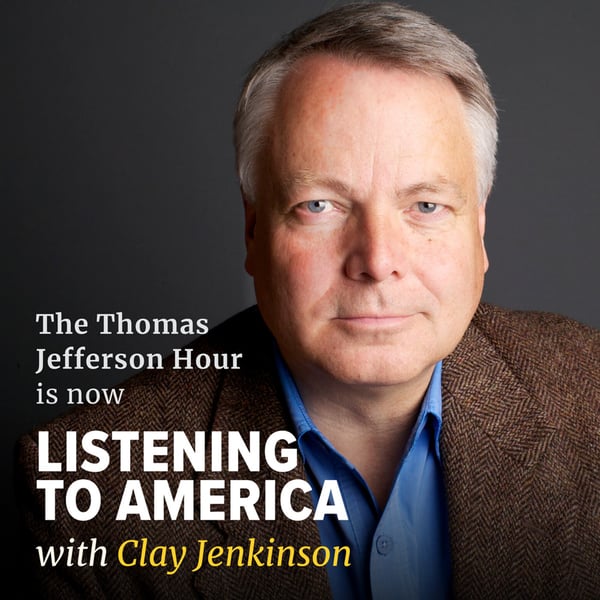#1639 Jefferson and the Lewis and Clark Expedition
Listening to America
Listening to America
4.6 • 1.1K Ratings
🗓️ 17 February 2025
⏱️ 57 minutes
🧾️ Download transcript
Summary
Guest host Russ Eagle interviews Thomas Jefferson about the American West. When he became the third president in the spring of 1801, Jefferson hired Meriwether Lewis to be his private correspondence secretary. Two years later, he selected Lewis to explore the American West by traveling up the Missouri River to its source, crossing the continental divide, and following tributaries of the Columbia to the Pacific Ocean. Mr. Jefferson discusses his lifelong fascination with the West, his previous attempts to get an exploring party up the Missouri River, his secret message to Congress to get funding for the Lewis and Clark Expedition, and his famous instructions to Lewis, which embodied the principles of the Enlightenment. Lewis and Clark led the most famous exploration in American history, so why did Lewis commit suicide just three years after the successful conclusion of his travels?
Transcript
Click on a timestamp to play from that location
| 0:00.0 | Hello, everyone. Welcome to this introduction to this week's podcast. I have the great joy of being able to do this one with Russ. |
| 0:06.5 | Russ Eagles across from me. We're in Missoula at the moment after two exhausting weeks hosting the humanities retreats up at Locksaw Lodge, one on Shakespeare and the other one on Edward Abbey and Henry David Thoreau. |
| 0:18.2 | You should check those out at LTamerica.org and sign up for our newsletter. |
| 0:22.3 | And for that matter, if you can contribute to our success, we would be delighted and deeply gratified. |
| 0:28.4 | So, Russ, Lewis & Clark has mattered to you for a long time. You've been a member of the North Carolina chapter of the Lewis and Clark Foundation. |
| 0:39.5 | What got you interested in Lewis and Clark? I have to give you credit for that one, play. It was your Lewis book, and that's why I |
| 0:45.1 | bring it up in the podcast. You know, that book and the approach that you took. I mean, it's really |
| 0:51.2 | that approach that sort of pulled me into the story because it's a story that's still being written, which most history, I guess, is, but just the way you approached it. And as I said, David Nacandry as well. And that's why, to me, the best way to talk about Lewis and Clark is with the two of you in the room. |
| 1:09.5 | Well, the two of us are old friends, Nacandry and I, and so the three of us are now old |
| 1:13.6 | friends. |
| 1:14.6 | He comes off into these Lewis and Clark summer trips and sometimes to the winter Humanities |
| 1:18.6 | retreats too, and he's in his 70s now. |
| 1:21.6 | His second career is being a writer, and he's been very successful at it, beginning with |
| 1:26.6 | his book River of Promise, Lewis and Clark on the Columbia, which I had the honor of editing. |
| 1:30.9 | And as you said during the podcast, I wrote the foreword to, Necandre and I can claim, I think, |
| 1:36.0 | to be pioneers in a limited way. |
| 1:40.2 | Number one, we believe that you can't understand the story if you think that Lewis and |
| 1:43.5 | Kirk are identical twins. |
| 1:45.1 | They just aren't. |
| 1:45.8 | They're different men. |
| 1:46.9 | Famously friends, both had deep respect and admiration for the other. |
| 1:52.7 | Clark protected Lewis from himself in some important ways. |
... |
Please login to see the full transcript.
Disclaimer: The podcast and artwork embedded on this page are from Listening to America, and are the property of its owner and not affiliated with or endorsed by Tapesearch.
Generated transcripts are the property of Listening to America and are distributed freely under the Fair Use doctrine. Transcripts generated by Tapesearch are not guaranteed to be accurate.
Copyright © Tapesearch 2025.

